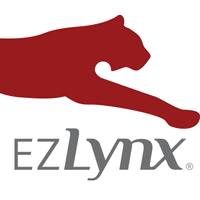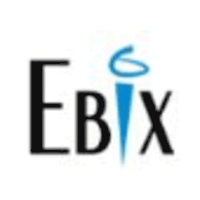Yes, commercial insurance software can be accessed from many devices and platforms. With the growing popularity of mobile devices, many insurance software vendors have made their programs available via web browsers and mobile apps. Users can access the program from their computers, laptops, cellphones, and tablets, independent of operating system. It gives insurance agents the flexibility and convenience to manage policies and claims on the go, enhancing accuracy and efficiency.
List of Best Commercial Insurance Software
Sapiens Reinsurance software is a solution tailored for the financial services sector. Designed specifically for insurance companies, it covers Property&Casualty, General Insurance, and Life&Pension Management. Our advanced software streamlines reins...Read More Sapiens
Particeep - a fintech solution that transforms the digital subscription process for financial products. Created specifically for banks, insurers, and investment firms, our platform allows for a compliant and hassle-free onboarding experience without...Read More Particeep
EZLynx is a highly efficient insurance policy management software designed for independent insurance agencies. It is the ideal solution for agencies looking to acquire new clients and improve customer retention. With a range of training options, incl...Read More EZLynx
BrokerEdge is a insurance broker software solution. Our platform simplifies and enhances broker operations by automating processes for personal, commercial, and specialty insurance lines. This allows brokers to prioritize delivering outstanding custo...Read More BrokerEdge
The Adaptik Suite is a insurance software designed to meet the unique needs of insurance companies. This powerful suite includes policy administration, fully customizable product configuration, and seamless integration capabilities, providing insurer...Read More The Adaptik Suite
Insurance Noodle is a digital tool designed to cater to the insurance needs of small businesses. Our user-friendly platform offers quick quotes, professional guidance, and a smooth online experience, allowing entrepreneurs to prioritize their busines...Read More Insurance Noodle
Renewalbook is a platform designed to simplify subscription management and streamline the renewal process. It offers valuable data analysis to help businesses reduce manual tasks, increase accuracy, and improve customer retention. By utilizing Renewa...Read More Renewalbook
BriteCore is a platform designed exclusively for P&C insurers. With its advanced features, including seamless integration, dynamic analytics, and customizable tools, BriteCore enables insurers to maximize operational efficiency and thrive in the ever...Read More BriteCore
Go-Insur: a insurtech solution built for Brokers, MGAs, and Insurers. With Go-Insur, businesses gain access to a highly flexible and agile platform, empowering them to swiftly launch new products, expand distribution, and achieve a remarkable return...Read More Go-Insur
ProMetrix is a risk analytics software designed specifically for commercial property insurance agents. Revolutionize your pricing, quoting, and underwriting procedures with ease and precision. Equipped with innovative risk management capabilities, Pr...Read More ProMetrix
i2go Cloud Insurance - a dynamic software as a service that simplifies insurance operations for businesses of any size. With swift product deployment, online sales, and seamless claims handling, i2go equips insurance providers to foster valuable clie...Read More i2go Cloud Insurance
AdvantageGo is a commercial insurance software designed to optimize the processes of commercial insurance companies. Featuring cutting-edge capabilities, this software facilitates insurance companies in gaining valuable insights for making data-drive...Read More AdvantageGo
Briza is a commercial insurance software designed to enhance your business operations. With its advanced features, Briza helps you optimize your processes and reduce paper usage for increased efficiency. Experience the efficiency and convenience of B...Read More Briza
InsureEdge is a software solution designed to streamline policy management and claims processing for insurance companies. Its centralized platform simplifies customer onboarding, policy administration, and reinsurance processes, leading to increased...Read More InsureEdge
Ebix is a globally acclaimed software solution provider for insurance professionals. Our cutting-edge SaaS-based offerings cater to diverse sectors like health, finance, property, casualty and life, and are trusted by top insurance companies worldwid...Read More Ebix
Learn More About Commercial Insurance Software
- What Is Commercial Insurance Software?
- What Are The Recent Trends In Commercial Insurance Software?
- Benefits Of Using Commercial Insurance Software
- Important Factors To Consider While Purchasing Commercial Insurance Software?
- Important Factors To Consider While Purchasing Commercial Insurance Software?
- Why Do Businesses Need Commercial Insurance Software?
- How Much Time Is Required To Implement Commercial Insurance Software?
- What Is The Level Of Customization Available In Commercial Insurance Software?
- Which Industries Can Benefit The Most From Commercial Insurance Software?
- Conclusion
What Is Commercial Insurance Software?
Commercial insurance software is an essential tool for businesses of all sizes to manage their insurance plans. It is also known as insurance management software, and it is a digital solution that makes it easier for businesses to get and manage insurance coverage. It provides a comprehensive platform for businesses to store and organize insurance policy information, monitor premium payments and claims, and connect with insurance providers.
This simplifies the insurance administration procedure while also ensuring accuracy and lowering the possibility of errors. Commercial insurance software must be able to track a company's insurance needs and guarantee that it has appropriate coverage for any threats. It gives organizations a 360-degree view of their insurance plans, making it easier to discover gaps in coverage and make required changes.
Commercial insurance software can also automate time-consuming operations including creating insurance certificates, managing policy renewals, and tracking claims. This saves firms important time and money, allowing them to concentrate on their main operations. Furthermore, commercial insurance software provides confidentiality and safety for firms' critical insurance information.
Businesses can be confident that their information is protected from cyber attacks and potential breaches thanks to enhanced encryption and data storage capabilities. When investing in commercial insurance software, firms should seek for capabilities like policy administration, claims management, document management, compliance tracking, and insurance provider integrations. These features not only ensure a seamless insurance administration procedure, but they also give organizations a competitive edge by lowering costs and increasing efficiency.
What Are The Recent Trends In Commercial Insurance Software?
As technology advances, the insurance business adapts to the changing landscape. One significant part of this evolution is the creation of commercial insurance software. This program is intended to simplify the process of administering and assessing commercial insurance policies, making it an invaluable resource for insurance firms and brokers alike.
we'll go over the latest trends in commercial insurance software to help you make an informed decision when choosing a solution for your organization.
1. Integration Of Artificial Intelligence (AI): One of the most recent developments in commercial insurance software is the use of artificial intelligence (AI) capabilities. Many software companies use artificial intelligence (AI) to automate basic operations like data input and document processing, freeing up insurance experts to focus on more strategic and complicated work. AI can also analyze data to spot patterns and trends, offering useful information for underwriting and risk management.
2. Enhanced Data: Analytics Commercial insurance software is becoming more advanced in terms of data analytics. With modern algorithms and machine learning, software solutions can now evaluate vast amounts of data to identify potential hazards and compute appropriate premiums based on a range of criteria. This not only assists insurance businesses in making data-driven decisions, but it also enhances the client's insurance experience.
3. Cloud-Based Solutions: Many commercial insurance software solutions are now available via cloud-based platforms. This means that all data is stored, maintained, and accessible via a secure online system, which facilitates collaboration, remote access, and real-time updates. Cloud-based solutions are also often less expensive because they do not require costly hardware or IT resources.
4. Mobile Applications: As mobile technology advances, an increasing number of insurance software suppliers offer mobile apps for their solutions. This enables insurance agents to access critical information and amend policies while on the go, boosting efficiency and improving the entire customer experience. Some apps also provide capabilities like digital claim submission and real-time client communication.
5. Personalization: Insurance companies are now adopting commercial insurance software to customize policies and services based on their clients' individual needs and preferences. This customisation not only boosts consumer pleasure, but it can also assist insurance businesses in attracting and retaining customers in an increasingly competitive market.
Benefits Of Using Commercial Insurance Software
Commercial insurance software is a powerful tool that has revolutionized the insurance industry for businesses of all sizes. It offers a wide range of features and benefits that cater to the ever-changing needs of the insurance market. If you're a business looking to streamline your insurance processes, here are some of the key benefits you can expect from using commercial insurance software:
1. Improved Efficiency And Productivity: One of the main advantages of using commercial insurance software is the significant improvement in efficiency and productivity. With its automated features, it eliminates manual tasks such as data entry, policy creation, and policy renewal, saving your team valuable time and reducing the risk of human error. This allows your team to focus on more critical tasks such as customer service and business growth, which ultimately leads to increased productivity.
2. Streamlined Claims Management: Commercial insurance software also simplifies the claims management process by automating the entire workflow. From the initial claim submission to processing and final settlement, the software streamlines the process, reducing the time and effort required to handle claims. This results in faster claim resolution, which in turn boosts customer satisfaction and retention.
3. Increased Accuracy And Data Security: Data accuracy and security are crucial in the insurance industry, and commercial insurance software ensures both. With its ability to automate data entry and manage complex insurance calculations, the software significantly reduces the risk of error. Furthermore, it also offers secure storage and data encryption, ensuring the protection of sensitive business and customer information.
4. Customization And Flexibility: Each business has its unique insurance needs, and commercial insurance software caters to that by offering customization and flexibility. With a variety of configuration options, the software can be tailored to meet the specific requirements of your business, allowing you to manage your insurance policies according to your business model.
5. Real-Time Insights And Reporting: Commercial insurance software provides real-time data and analytics, giving you better visibility into your insurance business. With detailed reports and analytics, you can track the performance of your policies and make informed decisions to optimize your insurance operations. This also enables you to identify and address any potential risks and opportunities, leading to increased profitability.
Important Factors To Consider While Purchasing Commercial Insurance Software?
When considering purchasing commercial insurance software, there are several important factors that businesses should carefully evaluate. This software serves a crucial role in managing insurance policies, claims, and other related tasks, so choosing the right one is vital for the success of any organization. Here are some key points to keep in mind when selecting commercial insurance software:
1. Coverage Needs: Before beginning your search for commercial insurance software, it is essential to determine your organization's specific coverage needs. This includes identifying the types of insurance policies you require, the number of employees and assets to be covered, and any other unique risk factors. Having a clear understanding of your coverage needs will help you narrow down your options and select the most suitable software for your business.
2. Customization And Flexibility: No two businesses are exactly alike, so it's important to choose commercial insurance software that offers customization and flexibility to fit your unique requirements. This could include the ability to add or remove features, tailor workflows, and create custom reports. Having a software system that can be tailored to your specific needs will improve efficiency and ensure a better fit for your organization.
3. Ease Of Use: The purpose of commercial insurance software is to streamline and simplify insurance management processes. Therefore, it's essential to choose a user-friendly platform that is easy for your staff to learn and use. This will ensure that operations continue smoothly without any significant disruptions.
4. Integration Capabilities: Your commercial insurance software should be able to seamlessly integrate with your existing systems, such as accounting software or customer relationship management tools. This allows for better data management and analysis, leading to more informed decision-making.
5. Data Security: Given the sensitive nature of insurance data, it is crucial to choose a software system that prioritizes data security. Look for software providers that offer data encryption, regular backups, and other security measures to protect your organization's information.
6. Customer Support And Training: Implementing a new software system can be a daunting task, so it's important to choose a provider that offers excellent customer support and training resources. This will ensure a smooth transition and minimize any potential disruptions to your operations.
7. Scalability: As your business grows, so will your insurance needs. It's important to choose a commercial insurance software that can accommodate your organization's future needs and growth. This will save you the hassle and cost of switching to a new system in the future. By carefully considering these factors, businesses can make an informed decision when selecting commercial insurance software. It's crucial to prioritize your organization's specific needs and choose a user-friendly, secure, and scalable solution that can grow with your business. Remember to thoroughly research and compare different software providers to find the one that best fits your budget and requirements.
Important Factors To Consider While Purchasing Commercial Insurance Software?
When selecting the best Commercial Insurance Software for your business, it's critical to consider the main aspects that will best meet your specific requirements. With a multitude of options available on the market, here are some key factors to consider:
1. Customization And Flexibility: Each business is unique, as are its insurance needs. Look for software with adjustable features and a flexible interface that can be tailored to your specific business procedures.
2. Policy Management: One of the primary goals of commercial insurance software is to handle policies effectively. It should allow you to easily and accurately create, edit, renew, and cancel policies.
3. Claims Management: In order to handle complex claims processes, any insurance program must have a powerful claims management system. Look for features like streamlined workflows, automated processes, and real-time communication to guarantee that claims are handled efficiently.
4. Integration Capability: In today's digital world, software must integrate with various systems and platforms. Look for insurance software that can be easily integrated with your current CRM, accounting, and other systems to help you optimize company operations.
5. Risk Assessment And Analysis: Comprehensive risk assessment and analysis capabilities are required to identify potential risks and decide suitable coverage. Look for software that includes thorough risk assessment tools and data analysis features.
6. Compliance And Regulatory Support: The insurance sector is extensively regulated, therefore your software must keep up with the current regulations. Look for software that has compliance capabilities and support to ensure that your company remains compliant.
7. Reporting And Analytics: Data is essential for making informed decisions, thus your insurance program should have extensive reporting and analytics. Look for tools like configurable dashboards, real-time data, and predictive analytics to help you monitor and improve your performance.
8. User-Friendly Interface: A user-friendly interface is required for seamless navigation and ease of usage. Look for software with an easy-to-use interface and a well-organized structure.
9. Secure Data Storage: Because insurance deals with sensitive and private information, security is critical. Look for software that includes secure data storage and encryption features to keep your data safe from outside dangers.
10. Reliable Customer Support: No software is perfect, and you may experience problems or require assistance at some point. Look for software that provides trustworthy customer support, such as onboarding, training, and technical assistance. By taking these major qualities into account, you can make an informed decision about which commercial insurance software best meets your company's demands and, as a result, can assist enhance overall operations.
Why Do Businesses Need Commercial Insurance Software?
Every day, businesses of all sizes and industries face a wide range of risks and uncertainties. Unexpected incidents, such as property damage and liability claims, cyber attacks, and staff injuries, can all have a significant influence on a company's financial health and operations. This is where commercial insurance comes in as an important risk management tool for firms.
Managing many insurance policies and keeping track of different coverage limitations, deductibles, and premiums can be difficult. Here is where business insurance software comes into play. Commercial insurance software is a comprehensive, unified solution that enables organizations to optimize and automate their insurance processes.
It streamlines insurance management by offering a single platform for storing policy information, tracking claims, and generating reports. One of the most major advantages of adopting commercial insurance software is that it may assist firms in identifying potential gaps or overlaps in their insurance coverage. Companies that have a thorough understanding of all policies and coverages can make informed judgments when obtaining or renewing insurance.
Furthermore, commercial insurance software enables firms to save time and decrease human errors. With automated workflows and document management tools, it reduces the need for manual data entry and paper-based operations, both of which can be error-prone. Furthermore, commercial insurance software provides real-time data and analytics that help firms understand their risk exposures and patterns. This vital information can help businesses identify any areas of concern and take preventive measures to reduce risks.
How Much Time Is Required To Implement Commercial Insurance Software?
The time required to deploy commercial insurance software is determined by a number of factors, including the specific software utilized, the size and complexity of your organization, and the amount of data that must be imported into the system. On average, it can take between a few weeks and several months to properly develop and integrate commercial insurance software into your operations.
One of the most important elements influencing implementation timelines is the extent of customization necessary for your individual business demands. Some software may have a more standardized implementation procedure, whereas others may require more time and resources to be customized to your company's specific operations and rules. Furthermore, the size and complexity of your firm can influence the implementation timeline.
Larger businesses with several locations and a higher volume of insurance policies may require more time to completely integrate the software and teach personnel on how to use it successfully. Another important consideration in the timetable is the amount of data that must be transferred into the system. If you have a large volume of previous data, it may take longer to enter and organize into the new program.
It is vital to remember that effective planning and communication can help to speed up the installation process and ensure a smooth transition to the new software. Working closely with the software vendor and setting realistic deadlines can also assist prevent potential delays.
What Is The Level Of Customization Available In Commercial Insurance Software?
Commercial insurance software is intended to improve and simplify the management of insurance policies, claims, and other critical parts of the insurance industry. When it comes to choosing the best commercial insurance software for your company, one of the most important considerations is the level of customisation offered. In today's fast-paced business environment, each organization has own needs and processes.
This is why it is critical to select commercial insurance software that provides a high level of customisation. So, what exactly does customization mean in terms of commercial insurance software? Let's have a closer look. Customization in commercial insurance software refers to the capacity to tailor the program to your own company requirements. It allows you to customize the software to meet your individual procedures, workflows, and data management requirements.
This implies that you can tailor many components of the software, such as the user interface, reports, modules, and more, to your organization's needs. Commercial insurance software's level of customisation varies by vendor. Some software may provide simple customization choices, but others may provide a broader range of customization tools.
It is critical to analyze the level of customisation provided by each software vendor to verify that it meets your business requirements. When it comes to customisation, one important feature to look for is the option to create custom fields. This enables you to add fields and data points unique to your company, making it easier to manage and track vital information.
Another key feature to consider is the ability to customize procedures and processes. This allows you to modify the program to your specific internal operations, saving time and enhancing efficiency. Furthermore, the amount of customisation should include the ability to interact with other applications and systems that your company may utilize. This enables seamless data sharing and eliminates the need for manual data entry, thereby saving time and eliminating errors.
Which Industries Can Benefit The Most From Commercial Insurance Software?
Commercial insurance software is an extremely useful tool for organizations of all sizes and sectors. This technology is intended to simplify and automate insurance procedures, allowing organizations to better manage policies, claims, and other insurance-related chores. As a buyer's guide for commercial insurance software, it is critical to understand which industries will gain the most from this technology.
In this section, we will look at the top industries that can benefit from commercial insurance software and how technology can help them.
1. Insurance Companies: The obvious response to this question is the insurance companies themselves. Commercial insurance software is created expressly for their needs, giving a comprehensive set of capabilities for managing policies, claims, and underwriting processes. This software allows insurance businesses to increase efficiency, decrease manual errors, and deliver better customer care to their clients. They also have access to real-time data and analytics, which allows them to make data-driven business decisions. As a result, commercial insurance software is an absolute necessity for insurance companies trying to stay competitive.
2. Healthcare Industry: The healthcare industry is one of the largest and most complicated, making handling insurance processes challenging. Commercial insurance software can provide healthcare businesses with a consolidated platform for managing all aspects of insurance, from medical billing to coverage verification. This software can also automate the claims process, resulting in quick and precise payments. Healthcare providers can use commercial insurance software to alleviate administrative burdens and focus on providing great treatment to their patients.
3. Retail And E-Commerce: The retail and e-commerce industries can also benefit significantly from commercial insurance software. These organizations handle a high volume of transactions and incur a variety of risks, including liability, inventory damage, and cyber threats. Commercial insurance software can help merchants and e-commerce enterprises manage their insurance needs more efficiently. It can streamline the process of obtaining insurance policies, handling claims, and tracking coverage. Furthermore, the analytical capabilities of this software enable firms to identify possible hazards and make informed decisions to mitigate them.
4. Construction: The construction industry is a strong contender for commercial insurance software benefits. Given the high risk nature of this profession, construction companies must have adequate insurance coverage to protect their projects, employees, and equipment. Commercial insurance software can help construction organizations expedite their insurance processes, from getting project-specific policies to monitoring construction site liabilities and claims. This program can help construction companies save time, money, and secure full insurance coverage.
Conclusion
Finally, choosing the correct commercial insurance software for your organization is an important decision that can have a significant impact on its performance. You may make an informed and effective insurance purchase by thoroughly knowing your needs and taking all relevant considerations into account. First and foremost, evaluate your specific insurance needs, whether they are for liability, property, workers' compensation, or other areas.
This can help you limit down your alternatives and select software that is tailored to your exact requirements. Next, decide which features and functionalities are most important to you, such as policy management, claims processing, data analysis, and reporting. It is also a good idea to choose software that is easy to use and has a clean, structured interface.
Another important consideration is the software's interoperability with your existing systems and operations. It should connect seamlessly with your current processes to avoid disruptions or compatibility difficulties. It is also critical to thoroughly evaluate the software's security mechanisms and data protection policies to ensure the safety of sensitive information.
This is particularly crucial in the insurance industry, where confidentiality is paramount. Furthermore, assessing the degree of customer assistance and training supplied by the software provider is critical for the product's successful adoption and continuous use. Finally, think about the cost and return on investment for the program.
While a more expensive choice may include advanced capabilities, it may not always be the greatest fit for your company. Choose software that is cost-effective and meets your needs. By carefully examining these variables and completing extensive research, you can confidently select the best commercial insurance software for your company. Remember, investing in dependable and effective software can streamline your insurance operations, saving you time and money while also contributing to the success of your organization.
Commercial Insurance Software FAQ's
Can Commercial Insurance Software Be Accessed Across Multiple Devices And Platforms?
Is Commercial Insurance Software Future-Proof And Adaptable To Emerging Technologies Like Ai, Blockchain or Iot?
Yes, commercial insurance software is meant to be future-proof and adaptable to emerging technologies such as artificial intelligence, blockchain, and the Internet of Things. This is due to the fact that insurance businesses must constantly evolve and adapt in order to be competitive in a volatile market. With the use of such technology, commercial insurance software offers improved features and capabilities, streamlining procedures and improving productivity.
It also improves risk management, fraud detection, and the customer experience. As a result, adopting such software is critical for commercial insurance organizations seeking long-term growth and profitability.
Is There A Free Trial Offered To Assess Commercial Insurance Software Before Committing?
Yes, some commercial insurance software vendors provide a free trial period for potential clients to evaluate the product's features and operation before making a purchase. This trial period, which normally lasts 7 to 14 days, allows users to test the software, learn about its features, and assess whether it fulfills their specific business needs. This free trial offer provides an excellent opportunity for businesses to make an informed decision before investing in commercial insurance software.
Does Commercial Insurance Software Offer Data Security Features And Meet Regulatory Compliance Standards?
Yes, commercial insurance software typically offers data security features, such as encryption and data backup, to protect sensitive information. These softwares are also designed to meet regulatory compliance standards set by government agencies to ensure the privacy and security of customer data. This allows insurance companies to confidently store and manage important data without the risk of non-compliance penalties.
Can Commercial Insurance Software Integrate Seamlessly With Existing Tools And Platforms?
Yes, commercial insurance software is designed to work easily with existing tools and platforms. It not only works with your existing systems and processes, but it also makes them more functional by automating operations, giving real-time data, and optimizing workflows.
This promotes a smooth transition while minimizing disturbances to your business activities. Commercial insurance software's advanced features and customization choices allow it to smoothly connect into your existing infrastructure, making it a valuable and efficient tool for managing your insurance needs.

















